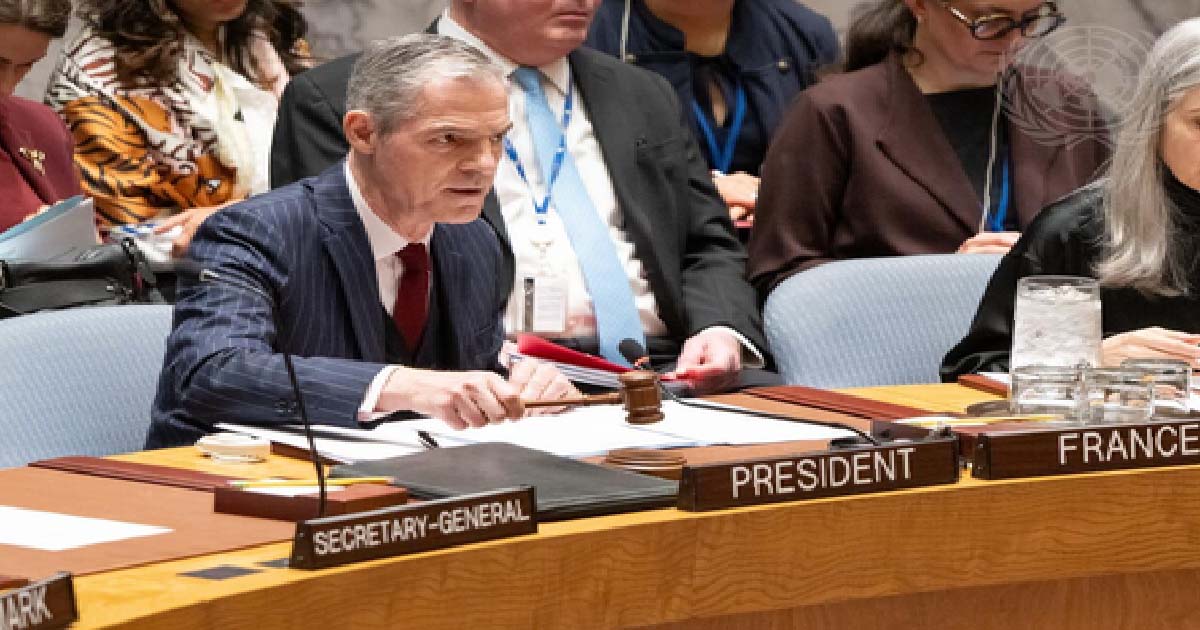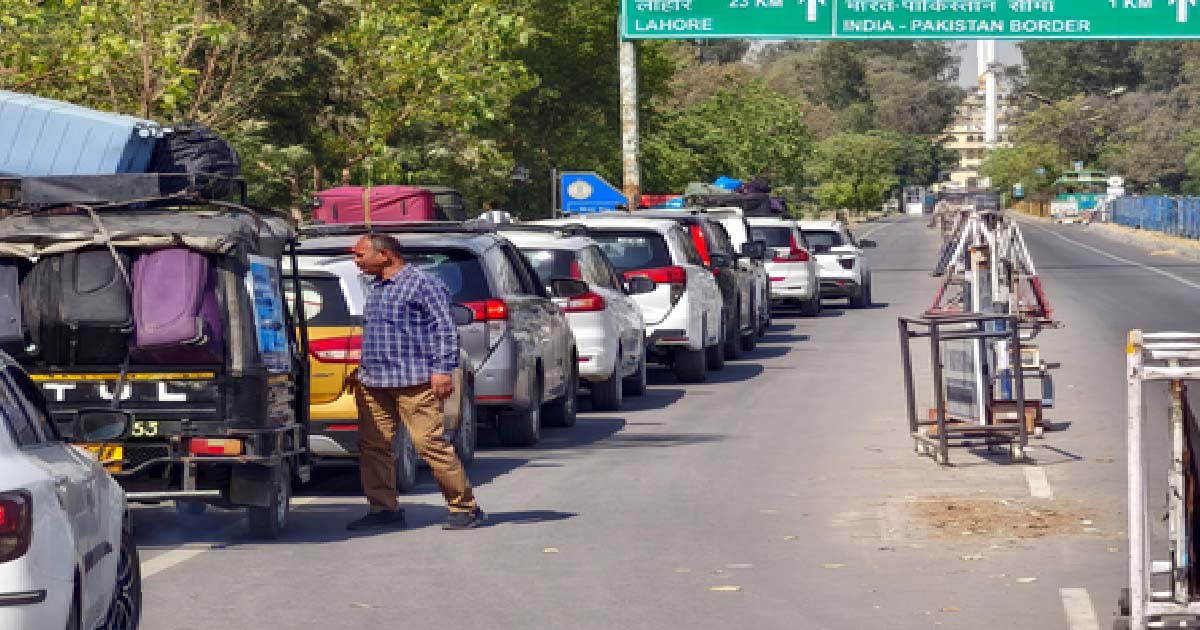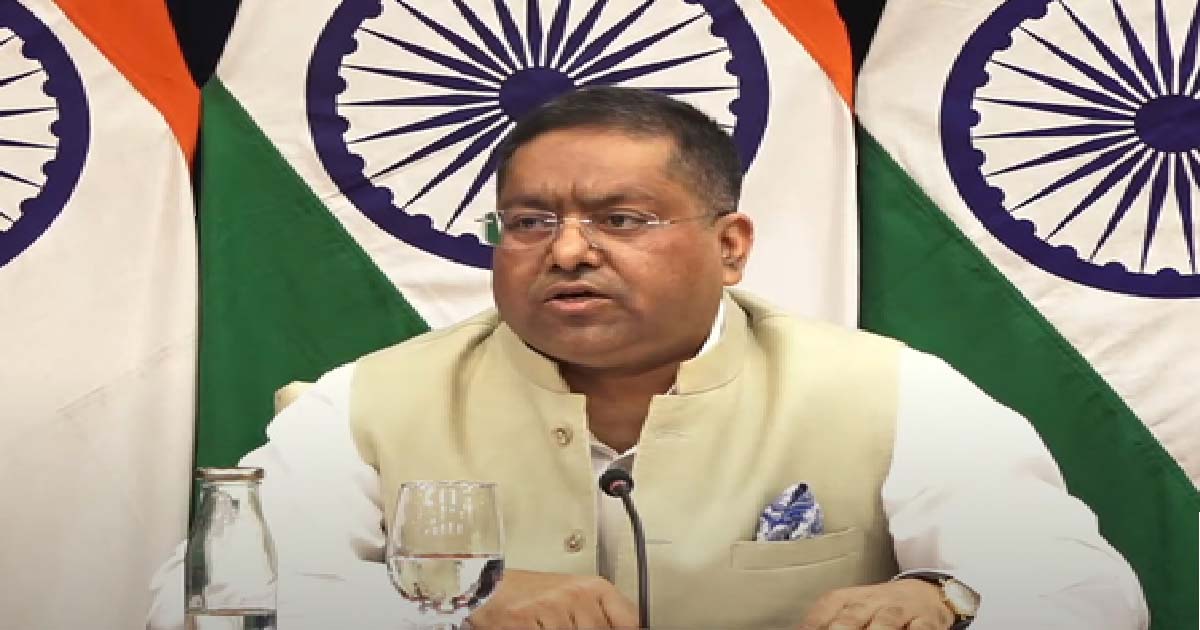International
Ashes, 2nd Test: Australia remove England’s openers after declaring at 473/9
Australia removed England openers Rory Burns and Haseeb Hameed to leave the tourists at 17/2 in 8.4 overs, trailing by 456 runs at stumps on day two of the second Ashes Test at the Adelaide Oval.
After Australia, on the back of counter-attack from the lower-order, declared at 473/9 in the first innings, Mitchell Starc and Michael Neser took out Burns and Hameed before a large lightning strike outside the venue forced early stumps to be called on a day thoroughly dominated by Australia.
In the final session, debutant Neser and Starc inflicted more misery on England with stunning late cameos. Neser and Starc shared a rollicking 58-run stand off just 51 balls as the hosts’ lower-order, along with Jhye Richardson, added 89 runs in only 10 overs before captain Steve Smith declared the innings.
With the ball, Starc struck on the first ball of his second over as Burns edged a nipping away delivery straight to Steve Smith at second slip. Neser got his first Test wicket on just his second ball as Haseeb Hammed chipped to mid-on.
A massive flash of lightning outside the venue when Neser bowled the fourth ball to Dawid Malan prompted the umpires to take the players off the field, eventually causing stumps.
Earlier, Marnus Labuschagne competed his sixth Test century while Steve Smith fell short of his and Carey chipped in with a half-century as Australia piled on the runs on an improved yet hapless England bowling attack.
Resuming from 221/2, Smith got the first boundary with a fierce cut through point off James Anderson.
Labuschagne, who ended day one unbeaten on 95, reached his maiden century in the Ashes with a streaky edge past the slip cordon off Anderson for his eighth boundary in a gritty knock. Labuschagne reached the three-figure mark in 287 balls, making this his slowest century in Test cricket.
The right-handed batter, who earned two reprieves on 21 and 95, was caught behind by keeper Jos Buttler on 102 off Ollie Robinson’s first delivery of the day. But replays showed that Robinson’s foot was on the line with nothing behind, giving Labuschagne another life.
Eventually, Robinson had the last laugh in his next over, with a nip-backer that Labuschagne shouldered arms to and hitting him on the knee roll of back pad. The 27-year-old reviewed but couldn’t change the decision.
Smith, in company of Travis Head, continued to move forward to reach his 32nd half-century, with a top-edge flying past Buttler while pulling a short ball from Ben Stokes. Head lofted over Joe Root’s head but the England captain got his wicket on the next ball, foxing the left-hander into yorking himself.
Cameron Green didn’t last long as Stokes got one to move past the outer edge and hit the top of off-stump.
Smith and Carey ensured that Australia didn’t lose another wicket till dinner break arrived. After the break, Carey, the hometown boy, was watchful at start but looked for scoring opportunities whenever it came while Smith was on cruise mode.
While Carey feasted on Root’s part-time off-spin, Smith was quick in dispatching all bad balls to the boundary.
The 91-run stand between Smith and Carey was broken by James Anderson, whose low nip-backer rapped Smith plumb in front of the pads. Smith’s dismissal on 93 meant that he missed out on his 28th Test century,16th as skipper and 12th in the Ashes.
In his next over, Anderson returned to fox Carey, who recorded his maiden Test half-century, with an off-cutter, which the left-hander spooned to Haseeb Hameed at short cover on the stroke of tea. But with Starc and Neser shining with bat and ball in the final session, Australia found themselves back on the driver’s seat at the end of day two.
Brief Scores: Australia 473 for 9 decl in 150.4 overs (Marnus Labuschagne 103, David Warner 95,Steve Smith 93; James Anderson 2/58) lead England 17/2 in 8.4 overs (Michael Neser 1/4, Mitchell Starc 1/11) by 456 runs.
International
UNSC asks all countries to cooperate in bringing Pahalgam terrorists, backers to justice

United Nations, April 26: The Security Council has “condemned in the strongest terms” the Pahalgam terrorist attack and urged all countries to cooperate in bringing all those involved in the massacre, to justice.
The members of the Security Council “stressed that those responsible for these killings should be held accountable, and urged all States, in accordance with their obligations under international law and relevant Security Council resolutions, to cooperate actively with all relevant authorities in this regard”, Council President Jerome Bonnafont said in a Press statement on Friday.
A front organisation of the Pakistan-based terrorist group Laskhar-e-Tayiba has owned responsibility for the attack.
The statement issued by France’s Permanent Representative Bonnafont who is the Council president for this month, took a broad view of those involved in the massacre by including the financiers and sponsors.
“The members of the Security Council underlined the need to hold perpetrators, organisers, financiers and sponsors of this reprehensible act of terrorism accountable and bring them to justice”, the statement said.
Pakistan, which is on the Council as an elected member, went along with the other members in endorsing the statement, committing itself – at least on paper – to bringing those involved to justice.
A Press statement expresses the consensus of the Council and carries moral authority, while not being legally binding like a resolution.
The statement also shot down the attempts by some in Pakistan to give terrorist attacks a veneer of justification.
“The members of the Security Council reiterated that any acts of terrorism are criminal and unjustifiable, regardless of their motivation, wherever, whenever and by whomsoever committed”, it said.
The Council members “reaffirmed the need for all States to combat by all means, in accordance with the Charter of the United Nations and other obligations under international law, including international human rights law, international refugee law and international humanitarian law, threats to international peace and security caused by terrorist acts”, the statement added.
Earlier, the spokesperson for Secretary-General Antonio Guterres hinted that a diplomatic effort by him may be afoot.
Asked by a reporter, if Guterres would speak to leaders of India and Pakistan, Spokesperson Stephane Dujarric said that he hoped to have something to share on that later.
Reiterating the condemnation of the terrorist attacks, Dujarric said, “We again urge both the Government of India and the Government of Pakistan to exercise maximum restraint to ensure the situation does not deteriorate further.”
When a reporter asserted that the possibility that “two nuclear countries” might “go to war” was getting insufficient attention, Dujarric said, “I don’t agree with your comment. We are paying very close attention to the situation between India and Pakistan.”
International
Wagah-Attari border closure leaves several families in limbo

Islamabad, April 25: Pakistan and India’s decision to shut down the Wagah-Attari border crossing after the deadly Pahalgam terror attack has forced several citizens from both countries to cut short their visit and rush back home.
On Thursday, after both countries announced closure of border crossing and gave a deadline for citizens to leave for their respective countries, at least 28 Pakistanis nationals returned from India while 105 Indian citizens in Pakistan crossed over into India.
A Hindu family from Balochistan’s Sibi was reportedly denied entry into India after the closure of border crossing.
“We were on our way to Indore in Madhya Pradesh to attend a wedding. Seven members of our family were excited to join our relatives in India and take part in the celebrations. But upon reaching Wagah, we learned that the border had been sealed. We will spend the night at Dera Sahib in Lahore and head back home tomorrow,” said Akshay Kumar.
Meanwhile, a Sikh family from India, in Pakistan to attend a wedding, decided to leave for India immediately.
“We had come to Pakistan for a wedding. While the ceremony took place, several important rituals remained. Once we heard the border was closed, we decided to return immediately,” said Raminder Singh, an Indian national.
A Hindu family from Ghotki in Pakistan’s Sindh province, now residing in New Delhi, was visiting Pakistan for the last two months to meet their relatives. However, they are now unsure about getting permission to return to India.
“There are five of us, including my young son and daughter, uncle and aunt. We all hold Pakistani passports and were granted No Obligation to Return to India (NORI) certificate by India. But uncertainty looms now, said a family member named Indira.
“Families with cross-border ties often bear the brunt of rising tensions between the two neighbours. With tensions between Pakistan and India once again on the rise, human connections across borders are becoming the first casualty,” said Asif Memood, a Lahore-based journalist.
“The closure of the Wagah-Attari border has left many families in limbo, uncertain when they will next reunite with their loved ones,” he added.
International
Murder of Hindu leader: India slams Bangladesh, says killing follows pattern of systematic persecution of Hindu minorities

New Delhi, April 19: India on Saturday issued a sharp condemnation of the abduction and brutal killing of Bhabesh Chandra Roy, a prominent Hindu community leader in northern Bangladesh, calling it part of a “pattern of systematic persecution” of minorities under the country’s interim government.
Ministry of External Affairs (MEA) spokesperson Randhir Jaiswal voiced India’s grave concern, stating that the incident reflects an alarming trend of targetted violence against Hindus and other minority groups in Bangladesh.
“We have noted with distress the abduction and brutal killing of Shri Bhabesh Chandra Roy, a Hindu minority leader in Bangladesh. This killing follows a pattern of systematic persecution of Hindu minorities under the interim government, even as the perpetrators of previous such events roam with impunity,” Jaiswal said in a post on social media platform X.
He added, “We condemn this incident and once again remind the interim government to live up to its responsibility of protecting all minorities, including Hindus, without inventing excuses or making distinctions.”
India has previously expressed similar concerns over rising attacks on minorities in Bangladesh, but this latest incident has drawn particular attention due to Roy’s prominence in the Hindu community.
Roy, who served as the Vice-President of the Biral unit of the Bangladesh Puja Udjapan Parishad, was abducted from his residence in Dinajpur district on Thursday evening. According to police and family accounts, he received a phone call around 4:30 p.m., after which four unidentified men arrived on motorcycles and forcibly took him to Narabari village. He was reportedly assaulted and later found unconscious. He was rushed to a hospital in Dinajpur, where he was declared dead on arrival. His wife, Shantana Roy believes the attackers used the call to confirm his location before carrying out the abduction.
Opposition leaders in India also slammed the shocking incident in the neighbouring country.
Congress President Mallikarjun Kharge highlighted that religious minorities, especially Hindus, are being persecuted in Bangladesh.
“Attacks on other religious minorities are also continuing. Recently, the Chief Advisor of Bangladesh made a very condemnable and disappointing comment about the northeastern states of India. The persecution of religious minorities in Bangladesh, human rights violations, and the attempt to erase the memories of the 1971 Liberation War are efforts to weaken the relationship between India and Bangladesh. From 1971 till today, India has always wished for peace and prosperity for all the people of Bangladesh. This is in the best interest of the subcontinent,” he said.
-

 Crime3 years ago
Crime3 years agoClass 10 student jumps to death in Jaipur
-

 Maharashtra1 year ago
Maharashtra1 year agoMumbai Local Train Update: Central Railway’s New Timetable Comes Into Effect; Check Full List Of Revised Timings & Stations
-

 Maharashtra1 year ago
Maharashtra1 year agoMumbai To Go Toll-Free Tonight! Maharashtra Govt Announces Complete Toll Waiver For Light Motor Vehicles At All 5 Entry Points Of City
-

 Maharashtra1 year ago
Maharashtra1 year agoFalse photo of Imtiaz Jaleel’s rally, exposing the fooling conspiracy
-

 National News1 year ago
National News1 year agoMinistry of Railways rolls out Special Drive 4.0 with focus on digitisation, cleanliness, inclusiveness and grievance redressal
-

 Maharashtra1 year ago
Maharashtra1 year agoMaharashtra Elections 2024: Mumbai Metro & BEST Services Extended Till Midnight On Voting Day
-

 National News1 year ago
National News1 year agoJ&K: 4 Jawans Killed, 28 Injured After Bus Carrying BSF Personnel For Poll Duty Falls Into Gorge In Budgam; Terrifying Visuals Surface
-

 Crime1 year ago
Crime1 year agoBaba Siddique Murder: Mumbai Police Unable To Get Lawrence Bishnoi Custody Due To Home Ministry Order, Says Report














